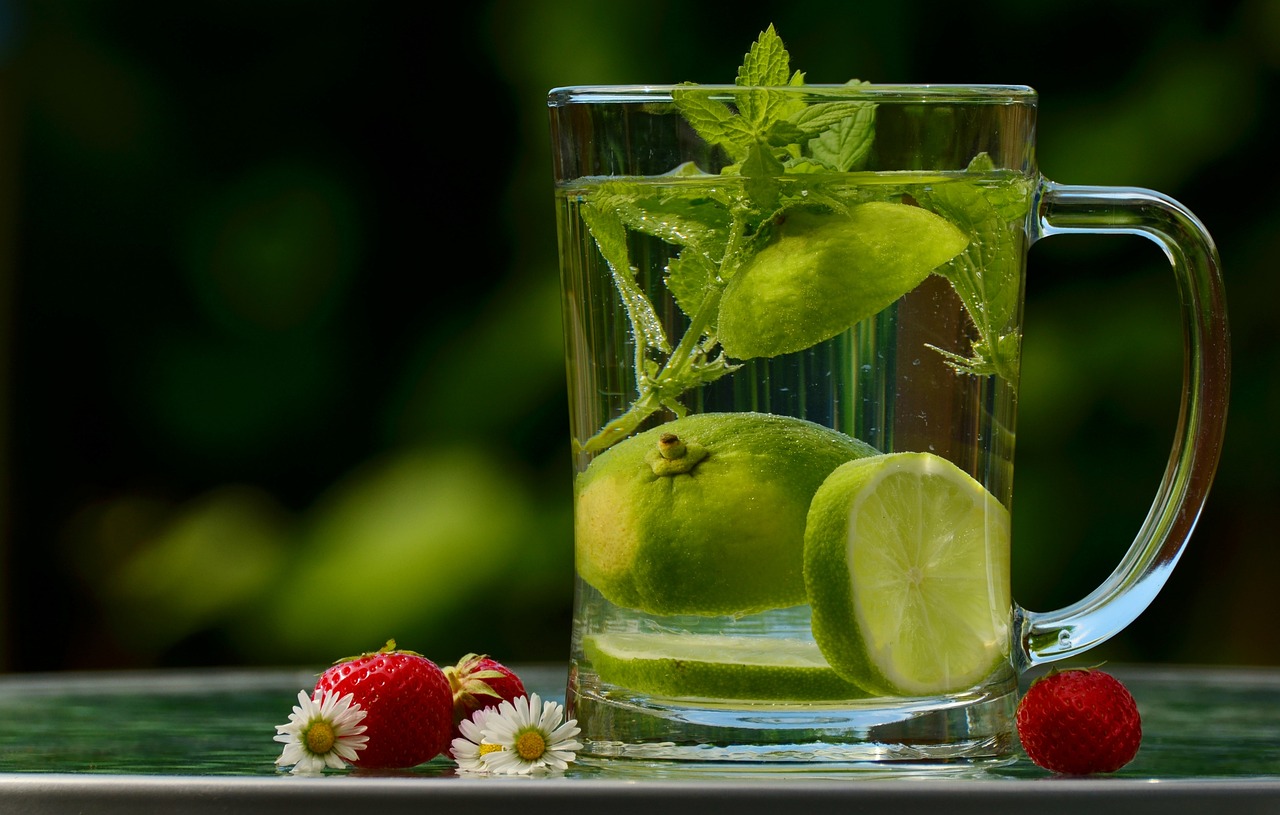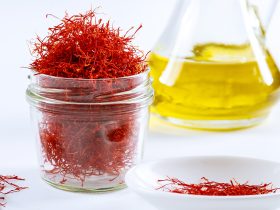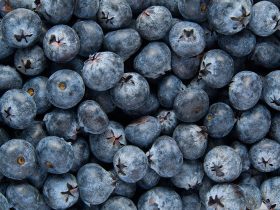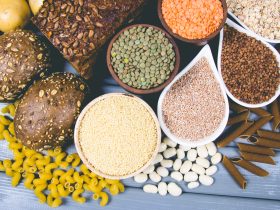The intricate balance of every person’s health and well-being hinges on the body’s ability to efficiently remove and purge toxins. In a world saturated with environmental pollutants, toxic body care products, and processed foods, the need for a thorough detox has never been more crucial.
With constant exposure to environmental toxins, questionable body care products, and processed foods, many individuals find themselves in dire need of a comprehensive detox. The pursuit of optimal health often starts with understanding the mechanisms of detoxification.
At the forefront of the body’s detoxification process stands the liver, an unsung hero performing one of the most arduous tasks in our biological system.
The liver, a multitasking marvel, tirelessly works to purify our blood, generate bile for efficient fat digestion, metabolize hormones, and store crucial vitamins, minerals, and iron.
The liver’s extensive responsibilities encompass detoxifying the bloodstream, ensuring proper digestion of fats, breaking down hormones, and serving as a storage hub for essential nutrients. When the liver functions optimally, our ability to digest food, especially fats, is enhanced, laying the foundation for overall well-being.
When the liver’s functionality is compromised, repercussions ripple through the entire body. Inefficient digestion, particularly of fats, becomes a challenge. This underscores the significance of maintaining a healthy liver to support vital bodily functions.
One of the primary consequences of suboptimal liver function is the risk of developing a fatty liver. To counteract this, adopting a liver cleanse diet emerges as a proactive strategy to eliminate toxins from the body.
A well-structured liver cleanse can restore the liver’s optimal functioning and contribute to overall health.
Let’s get into more detail about this organ and how you can effectively detox it!
The Liver’s Functions
The liver is a multifaceted organ with a range of crucial functions that contribute to the overall health and well-being of the body. Here are some of the essential tasks performed by the liver:
- Protein and Cholesterol Synthesis: It is responsible for the production of essential proteins and cholesterol, vital components for various bodily functions.
- Blood Composition Regulation: It regulates the composition of blood, maintaining a delicate balance of proteins, fats, and sugars essential for bodily functions.
- Detoxification: The liver acts as a powerful detoxifier, removing toxins such as bilirubin, ammonia, and others from the bloodstream to maintain a clean and healthy internal environment.
- Efficient Nutrient Processing: The liver plays a pivotal role in processing nutrients absorbed by the intestines, ensuring their optimal absorption and utilization by the body.
- Clotting Factor Production: Essential chemicals required for proper blood clotting are produced by the liver, contributing to the body’s ability to heal and recover.
- Alcohol and Medication Metabolism: The liver plays a crucial role in breaking down and metabolizing alcohol and medications, ensuring their safe elimination from the body.
- Red Blood Cell Management: The liver is involved in the destruction of old red blood cells, a process integral to maintaining a healthy blood supply.
- Mineral Storage: Storage of minerals like iron and vitamin A is another key function, ensuring a reserve of essential nutrients for the body’s needs.
Despite its resilience and ability to perform these vital functions, the liver is susceptible to damage and disease.
While many associate liver disease with alcohol-induced cirrhosis, there are various nonalcoholic factors that can lead to liver damage, including:
- Exposure to Chemicals: Contact with harmful chemicals is another nonalcoholic factor that can lead to liver damage.
- Ingestion of Poisonous Wild Mushrooms: Consuming poisonous wild mushrooms can have severe consequences on liver function.
- Certain Medications: Some medications, including acetaminophen, have the potential to cause liver damage if not used responsibly.
- Chronic Malnutrition: Prolonged nutritional deficiencies can impact liver health, emphasizing the importance of a balanced diet.
- Consumption of Uncooked Shellfish: Eating uncooked shellfish can pose risks to the liver and contribute to liver damage.
- Chronic Hepatitis B: Viral infections, such as chronic hepatitis B, can also contribute to liver disease and cirrhosis.
Understanding the diverse functions of the liver and the potential risks it faces from both alcoholic and nonalcoholic factors is crucial for maintaining optimal health and preventing liver-related complications.
Regular medical check-ups and a healthy lifestyle play pivotal roles in preserving the liver’s well-being.
The Risk Factors of Liver Health
In our contemporary lifestyles, the prevalence of environmental toxins in our homes, workplaces, and food sources poses a challenge to maintaining optimal liver health.
Recognizing the importance of a healthy liver for overall well-being, it’s crucial to be aware of the various risk factors associated with impaired liver function.
Here are some factors that may contribute to compromised liver health:
- Exposure to Industrial Chemicals and Toxins: Certain industrial chemicals and environmental toxins have the potential to harm the liver, highlighting the importance of minimizing exposure.
- Heavy Alcohol Abuse: Excessive and prolonged alcohol consumption is a well-known risk factor for liver damage and impaired function.
- High Triglyceride Levels: Elevated levels of triglycerides in the blood can contribute to metabolic issues and potentially impact liver health.
- Low Potassium Levels: Inadequate levels of potassium can impact liver function, emphasizing the importance of maintaining a well-balanced diet.
- Pre-1992 Blood Transfusions: Individuals who received blood transfusions prior to 1992 may be at risk due to potential exposure to bloodborne infections.
- Intravenous Drug Use: The use of drugs through intravenous methods poses a risk to liver health and can lead to various complications.
- Unprotected Sex: Engaging in unprotected sex can contribute to the risk of viral infections that may impact liver health.
- Autoimmune Diseases: Conditions where the immune system mistakenly attacks liver cells can result in autoimmune liver diseases.
- Tattoos or Body Piercings: Procedures involving tattoos or body piercings, especially in unregulated environments, may pose infection risks affecting the liver.
- Obesity and High-Fat Diet: Obesity and a diet rich in saturated fats and processed foods can contribute to fatty liver disease and impaired liver function.
- Prescription Medications, Including Acetaminophen: Certain medications, such as acetaminophen, when not used responsibly, can lead to liver damage.
- Viral Infections: Viral infections, particularly hepatitis viruses, are significant contributors to liver diseases.
Signs That You May Have an Unhealthy Liver
Recognizing the signs of an unhealthy liver is crucial for timely intervention and maintaining overall health.
If you’ve been experiencing any of the symptoms listed below, it’s essential to consider the possibility of impaired liver function, especially if you identify with one or more of the previously mentioned risk factors.
Here are potential signs of an unhealthy liver:
- Bloating and Gas: Persistent bloating and gas can be indicative of liver dysfunction, affecting digestive processes.
- High Blood Pressure: Liver dysfunction may contribute to high blood pressure, affecting overall cardiovascular health.
- Excessive Sweating: Unexplained excessive sweating can be a symptom of an unhealthy liver.
- Constipation: Impaired liver function may lead to digestive issues such as constipation.
- Yellowish Skin and/or Eyes (Jaundice): Jaundice, characterized by yellowing of the skin and/or eyes, is a classic symptom of liver dysfunction.
- Poor Appetite: A diminished appetite can be a consequence of liver issues affecting digestion.
- Acid Reflux and Heartburn: Liver issues can contribute to gastrointestinal problems, including acid reflux and heartburn.
- Moodiness, Anxiety, or Depression: The liver plays a role in hormone regulation, and dysfunction can impact mood and emotional well-being.
- Rosacea: Skin conditions like rosacea may be linked to liver health, reflecting internal imbalances.
- Chronic Fatigue: Liver dysfunction can lead to persistent fatigue, impacting overall energy levels.
- Inability to Lose Weight: A sluggish liver can impact metabolism, making it challenging to lose weight effectively.
- Easy Bruising: Impaired liver function may affect blood clotting, leading to easy bruising.
- Dark Urine: Dark-colored urine may be a sign of liver issues, suggesting the presence of bilirubin.
Fortunately, there are proactive steps you can take to improve liver function through a liver detox. Engaging in a thorough liver cleanse can be a transformative process, potentially leading to improved well-being within a matter of weeks.
By addressing the root causes and supporting the liver’s natural detoxification processes, individuals can take charge of their liver health and promote overall vitality.
The 6-Step Guide To Cleanse Your Liver
If you want to support your liver health, here are 6 simple ways in which you can detox it and keep it healthy:
- Make Sure You’re Getting Enough Potassium
Are you achieving the recommended daily intake of 4,700 milligrams of potassium? If not, you’re not alone.
Potassium-rich foods not only contribute to lowering systolic blood pressure but also play a pivotal role in reducing cholesterol, supporting cardiovascular health, and aiding in liver cleansing.
Instead of turning to potassium supplements, integrate these wholesome foods into your diet for a natural boost:
Bananas
Last but not least, incorporate a banana into your go-to smoothie. Bananas aid in digestion and facilitate the release of toxins and heavy metals from the body – crucial elements during a liver cleanse.
Sweet Potatoes
Contrary to popular belief, it’s not the banana that reigns supreme in potassium; it’s the sweet potato. A medium-sized sweet potato packs over 500 milligrams of potassium, coupled with high fiber and beta-carotene content.
Sweet potatoes boast a wealth of vitamins B6, C, and D, along with magnesium and iron. Despite their natural sweetness, the sugars are slowly released into the bloodstream through the liver, avoiding spikes in blood sugar.
Craft your concentrated tomato sauce by roasting halved organic tomatoes face down in the oven at 425 degrees F for 30 minutes. Once cooled, remove the skins, crush in a food processor or blender, strain to remove seeds if desired, and let simmer in a Dutch oven until thick (one to two hours).
Beet Greens and Spinach
Beet greens, rich in antioxidants and potassium, are versatile additions to your diet. Incorporate them into fresh vegetable juice, chop them finely for salads, or lightly sauté them as you would with other greens.
Beets, along with their greens, offer natural gallbladder cleansing properties and enhance bile flow. Fresh organic spinach is another potassium-rich gem easily incorporated into your meals.
Tomato Sauces
The potency of potassium, along with other beneficial nutrients in tomatoes, is concentrated in sauces, purees, or pastes. Opt for organic options when choosing tomato sauce, paste, or puree.
Blackstrap Molasses
Beyond potassium, blackstrap molasses brings iron, calcium, manganese, and copper to the table. Replace other natural sweeteners with blackstrap molasses, using it in barbecue sauces, atop oatmeal or quinoa porridge, or even in coffee to enhance richness and tone down acidity.
Beans
White beans, kidney beans, and lima beans are not only protein and fiber-rich but also potassium-packed. Swap garbanzo beans for these potassium-rich alternatives in your favorite hummus recipe. Enjoy the hummus with carrot sticks and celery for a wholesome snack.
Note
If you have elevated potassium levels in your kidneys, consume potassium-rich foods in moderation to maintain a balanced intake.
- Eliminate Harmful Foods from Your Diet
If your diet predominantly consists of processed foods, it’s time to rethink your choices for the sake of your liver’s well-being. We all know excessive sugar consumption is bad for our health, but it is not the only one we should worry about.
Processed foods pose a significant threat to your liver health, with hydrogenated oils, refined sugar, convenience foods, and lunch meats topping the list of notorious offenders.
Hydrogenated oils, often disguised as “trans fats,” boast higher levels of saturated fat. The very structure of these oils is altered to extend shelf life, but the consequences for your health are dire.
The consumption of trans fats significantly elevates the risk of heart disease. Moreover, there’s a belief that trans fats wreak havoc on the immune system, triggering inflammation throughout the body.
Convenience foods, fast foods, and lunch meats often harbor added nitrates and nitrites, chemicals linked to serious health conditions. These substances serve the purpose of preserving foods, prolonging their shelf life, inhibiting bacterial growth, and maintaining color.
These toxic additives, however, are detrimental to your health. Bid farewell to convenience foods and replace them with nourishing alternatives that promote liver health.
Revamp your meals with delicious, liver-friendly options that support your overall well-being. With a touch of creativity, you can craft wholesome dishes that your family will love.
Swap out deli meats laden with preservatives for freshly roasted organic chicken and turkey breasts. These make for quick, wholesome lunches and after-school snacks, ensuring you steer clear of the harmful effects of processed meats.
Bid farewell to chips and processed snacks. Opt for fresh fruits, crisp carrot sticks, nutritious nuts, and homemade granola bars. These alternatives not only taste fantastic but also contribute to your liver’s well-being.
While a healthy diet is crucial, don’t overlook the importance of well-functioning digestive enzymes. Issues with liver enzymes can contribute to liver disease and may be interconnected with other digestive ailments, such as Crohn’s disease.
- Do Coffe Enemas
Coffee enemas go beyond a morning wake-up call; they offer relief from constipation, alleviate fatigue, and play a crucial role in liver detoxification.
Distinguishing itself from colonics, which cover the entire bowel and require professional assistance, an enema focuses on the lower part of the large intestine. The convenience of at-home administration sets it apart, making it an accessible option for many.
During a coffee enema, organic coffee is retained in the bowel, allowing fluid absorption through the intestinal wall into the liver. This stimulation enhances bile flow, kickstarting both the gallbladder and the liver into action. The result? Increased production of glutathione, a potent cleansing compound that aids in releasing accumulated toxins from the system.
Effective liver cleanses require the swift elimination of toxins to prevent buildup. Coffee enemas play a pivotal role in this process, ensuring toxins are promptly flushed out of the system.
DIY Coffee Enema: Simple Steps for a Health Boost
- Brew Your Blend: Combine two tablespoons of organic ground coffee with three cups of filtered or distilled water in a pot. Bring it to a boil and let it simmer gently for 15 minutes. Allow the mixture to cool.
- Strain and Prepare: After cooling, strain the coffee through cheesecloth, creating the solution for your enema kit.
- Administering the Enema: Aim to retain the coffee mixture in your bowel for 10–15 minutes before releasing.
While coffee enemas offer notable benefits, it’s crucial to exercise caution:
- Consult a Professional: If you’ve encountered complications with enemas previously, consulting a doctor before attempting a coffee enema is advisable.
- Supervised Beginnings: For first-timers, performing a coffee enema under supervision or with guidance from a medical professional is recommended. While some may feel comfortable diving in, guidance ensures a safe and effective process.
- Caution for Certain Groups: Pregnant women and children, sensitive to caffeine’s effects, are usually not recommended to undergo coffee enemas.
Energize your body, combat fatigue, and enhance your liver’s detoxification process with the holistic benefits of coffee enemas.
Remember, a proactive approach to your well-being includes mindfulness and informed choices.
- Consume Real Liver or Take Liver Tablets
Young, healthy, grass-fed cattle or chicken liver emerges as a treasure trove of essential nutrients.
Bursting with vitamins A and B, folic acid, choline, iron, copper, zinc, chromium, and CoQ10, liver stands as one of the most nutrient-dense foods available. It not only satiates hunger but also nurtures our organs with unparalleled richness.
Beyond being a culinary delight, liver proves to be a powerhouse of nourishment for our organs. It embodies a nutrient density that goes beyond ordinary sustenance, offering a holistic boost to our well-being.
For those who find the idea of consuming real liver challenging, the convenience of beef liver pills provides a viable solution. These supplements encapsulate the nutritional benefits of real liver in a more palatable form. When opting for liver tablets, prioritize supplements that assure the absence of hormones, pesticides, or antibiotics in the cattle’s feeding and care.
- Try Raw Vegetable Juice
Ensuring an effective liver cleanse through raw vegetables can be a daunting task if consumed in their natural state. However, the solution lies in the vibrant world of juicing, offering a convenient way to obtain the essential four to five servings of fresh, organic vegetables crucial for your liver’s well-being.
For those with impaired liver function, embarking on a juice cleanse brings an added advantage. Juicing renders vegetables more digestible, facilitating increased absorption within the body. You can opt for the South Beach Diet, which contains vegetable juices and other healthy foods and drinks.
Key players in liver cleanses include cabbage, cauliflower, and Brussels sprouts. While this trio might not be your go-to favorites, fear not – you can elevate the flavor profile by incorporating other enjoyable vegetables like carrots, cucumber, beets, and various greens.
All these vegetables contribute to reducing acid levels, fostering a harmonious pH balance within the body. Get creative with flavor combinations by adding fresh herbs such as parsley and mint to make your juice experience even more delightful.
Boost your liver’s well-being with a refreshing Orange Carrot Ginger Juice. Research indicates that the inclusion of fresh, organic carrots is paramount for an effective liver cleanse. In the liver, beta-carotene transforms into vitamin A, aiding in toxin elimination and reducing liver fat.
The high fiber content in carrots supports a healthy digestive tract, expediting the elimination of toxins. Ginger root takes center stage in soothing the digestive tract, minimizing intestinal gas, and showcasing potent anti-inflammatory properties.
Adding a zesty touch, fresh oranges not only enhance sweetness but also provide a substantial dose of vitamin C, along with additional vitamin A and B6.
- Opt For Natural Supplements
Milk Thistle
Considered the “king” of detoxifying herbs, milk thistle takes the spotlight in liver cleansing. Its prowess lies in eliminating the buildup of heavy metals, prescription medications, environmental pollutants, and alcohol within the liver.
Beyond detoxification, milk thistle mitigates the adverse effects of chemotherapy and radiation. The active ingredient, silymarin, not only fortifies liver cell walls but also promotes healthy regeneration. Embrace the benefits of milk thistle through supplements or as a refreshing liver-cleansing detox tea.
Dandelion Root
While homeowners may dread the sight of dandelions in their yards, the dandelion root emerges as a nutritional powerhouse. Packed with vitamins and minerals, dandelion root acts as a natural diuretic, accelerating the liver’s toxin elimination process.
Dandelion root goes beyond yard aesthetics, contributing to immune system strength, blood sugar balance, heartburn relief, and digestive soothing. Similar to milk thistle, both dandelion root and burdock root (from the same plant family) can be consumed as supplements or in detox tea form.
Turmeric
Turmeric, renowned for its vibrant golden hue, supports healthy liver tissue and metabolism. Ongoing research explores the potential benefits of turmeric across various health conditions, including Alzheimer’s disease, cancer, depression, osteoarthritis, breast health, prostate health, and chronic pain.
Combination Liver Support Supplement
For a streamlined approach to liver support, consider a combination supplement. These formulations often blend key botanicals like milk thistle seed, dandelion root, beet root, and bupleurum root. This synergy aims to detoxify the liver, promote healthy liver function, and serve as an anti-inflammatory agent.
















Find Us on Socials